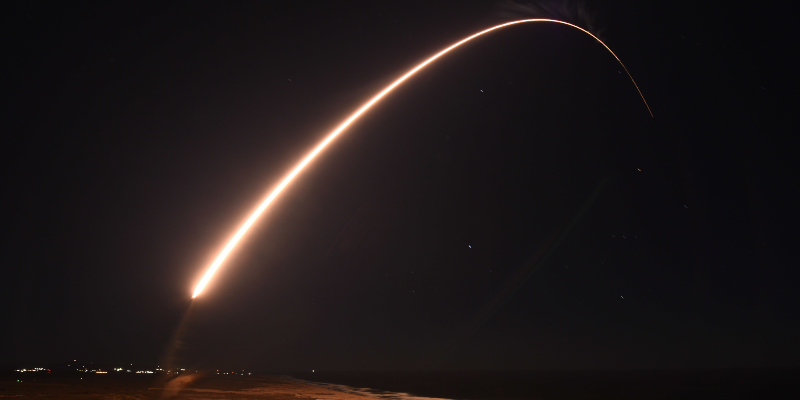U.S. Representatives Mo Brooks (R-Huntsville) and Jerry Carl (R-Mobile) submitted a request on Friday for increased funding for several of the nation’s missile defense programs.
In a letter to the House Appropriations Committee chairwoman and ranking member, Brooks and Carl joined seven other Republican colleagues in asking for funding above that outlined in President Joe Biden’s budget.
The members provided a list of missile defense programs worthy of more funding, including multiple programs with Alabama connections.
On the list was the Next Generation Interceptor program, which will be based out of Huntsville.
In March, the Missile Defense Agency awarded a total of $7.6 billion in contracts to Lockheed Martin and Northrop Grumman to develop technology for the program. The stated purpose of the award is to replace aging ground-based interceptors and strengthen the nation’s first layer of defense against intercontinental ballistic missiles aimed at the United States.
Northrop Grumman will team with Raytheon Technologies on the project, while Lockheed Martin will work with its partner Aerojet Rocketdyne, a company it announced in December it was acquiring.
Also on the list was the U.S. Army’s Patriot Advanced Capability-3 (PAC-3) Missile system. The Boeing Company’s Huntsville-based Missile and Weapon Systems division was awarded nearly $1 billion earlier this year to develop a next-generation technology.
“The United States military’s ability to deter and defend against missile and rocket attacks by our adversaries is one of its most critical missions. Our military services and combatant commands work around the clock every day to track and defend against potential threats to the United States, our allies, and U.S. forces located throughout the world,” wrote the letter signers.
In a release from his office, Brooks emphasized the need for the additional funding.
“America’s national security hinges on our ability to defend against missile and rocket attacks from our adversaries,” he said. “My House Armed Services Committee colleagues and I were extremely disappointed to see President Joe Biden’s $8.9 billion budget request for Fiscal Year 2022 fall short of the $10.5 billion enacted in Fiscal Year 2021. If we don’t robustly support missile defense programs, America will be less prepared to defend itself against attack and rogue nations might attempt to exploit missile defense weaknesses. America must never allow our adversaries to mistakenly believe they can defeat us. We must adequately fund our nation’s most effective and vital deterrents.”
Tim Howe is an owner of Yellowhammer Multimedia













